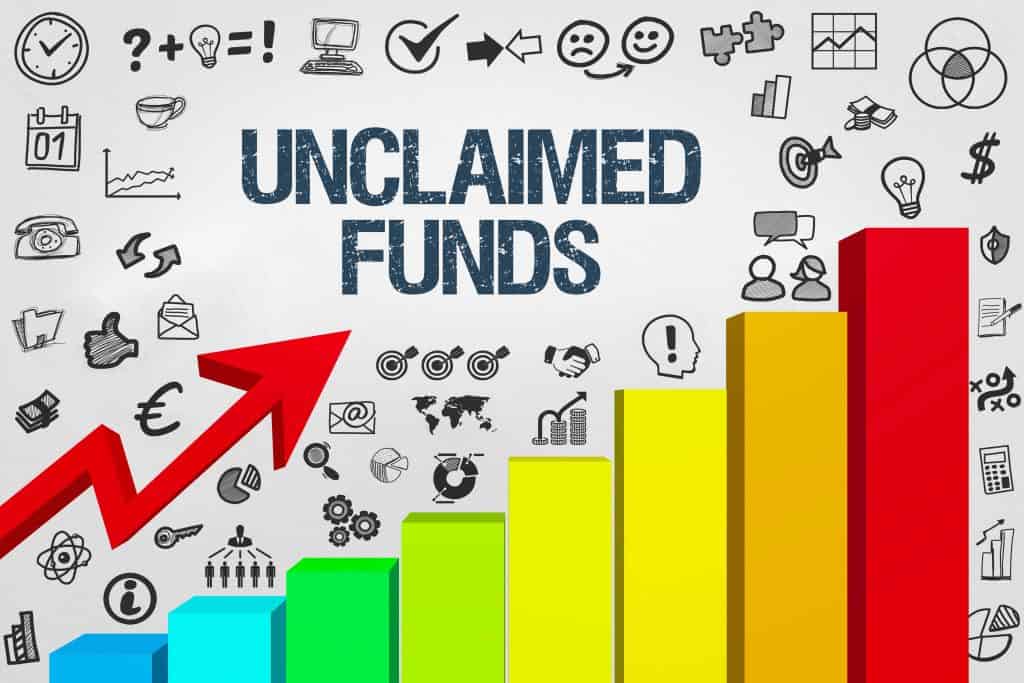It might sound crazy, but there are millions of Americans missing out on money or property today! It is likely that you’re one of them according to statistics. Unclaimed money isn’t free money. It is money that already rightfully belonged to you. There are billions of dollars being held by the government each year, and some of it could be yours!
Understanding What it Means to Have Unclaimed Money
The National Association of Unclaimed Property Administrations (NAUPA) says that 1 in 10 people in the United States have some sort of unclaimed property! Unclaimed or “abandoned” property can be cash or other assets. In this situation, property would be held inside a company or financial organization without any communication with the account holder. When there is no activity for a certain amount of time, the account goes into dormant status. After the dormancy period, the property is considered unclaimed. When this happens, the account gets handed over to the state. As a matter of fact, companies are required by law to turn them over after enough time has passed!
The Two Types of Unclaimed Property
Unclaimed property is categorized as either intangible or tangible. Tangible property is a person’s belongings, such as the items inside of a safety deposit box. However, the most common type is intangible, with an example being paychecks that weren’t cashed. Numerous examples of unclaimed property include:
- A checking account
- Stocks
- A savings account
- Insurance payments or refunds
- Customer over-payments
- Dividends that haven’t been cashed
- Money orders or gift certificates that haven’t been redeemed
- Mineral royalty payments
- Refunds
- Traveler’s check
- Annuities
- Safety box contents
- Trust distributions
- Certificates of deposit
- Security deposits for utilities
Do You Have Unclaimed Money?
Do you know if you have any unclaimed property waiting for you? If you’re not sure, there are a couple of ways to find out. Fortunately, it is fairly easy to check using official state government databases. Don’t worry, these searches are free! You can use the NAUPA website to direct you to the web page for your state. There is a reason you can only search by state. This is because the federal government doesn’t provide a national database. With that being said, the process to claim your funds is different depending on where you live. Alternative places you might have unclaimed money include:
- Insurance
- Past Employers
- Banking and Investments
Insurance
Two types of insurance that people can get refunds for include FHA insurance and VA insurance. When it comes to FHA Insurance, you might be owed a sum of money in the form of a refund. The United States Department of Housing and Urban Development (HUD) is in charge of handling these refunds. This is because the Federal Housing Administration (FHA) is a section of the HUD. Therefore, you can check for any refunds owed to you using the HUD database.
On the other hand, the United States Department of Veterans Affairs (VA) handles unclaimed property within VA Life Insurance. For this reason, the VA database is where you can check to see if you have any unclaimed money. Although, this search will not cover any possible funds from certain insurance policies dating back to 1965 until today.
Past Employers
Your plan of action to find unclaimed money from past employers will depend on what you’re looking for. For example, if you are due your pension, the Pension Benefit Guaranty Corporation (PBCG) can help! This is for cases where a company ended a defined pension plan or went out of business. Their website can help you track down the pension you are owed.
Another way that you could be due money from a previous employer are unpaid wages. If this is the case, you can turn to the United States Department of Labor (DOL) for help! If your past employer didn’t follow labor laws, you could be owed back wages. The DOL can assist you with collecting those owed wages. If you think this might apply to you, check out the DOL website. There, you can search a database of past employees who are owed unclaimed money.
Banking and Investments
This category, where you could have unclaimed money, is big. Due to this, there are many different examples that we could cover. However, there are four likely reasons why you could have unclaimed property. These include:
- Credit Union Failures
- Savings Bonds
- SEC Claims Funds
- Bank Failures
When it comes to credit union failures, the National Credit Union Administration (NCUA) is where you can search for any unclaimed money. However, for savings bonds, you can turn to TreasuryDirect.gov. On this website, you are able to find out if you have any savings bonds that have reached maturity and, as a result, aren’t earning interest anymore.
Third on the list are unclaimed funds with the Securities and Exchange Commission (SEC). In this situation, it is common for there to be an enforcement case where a company’s investors are owed money. You can find out if this applies to you through the SEC website. Lastly, consult the Federal Deposit Insurance Corporation (FDIC) to see if you have any unclaimed money from bank failures.
The Bottom Line
Now that you understand the many ways you can have unclaimed money, you know why it is so common! 1 out of every 10 Americans has some sort of unclaimed property. In order for money to be determined as “abandoned” or unclaimed, it has to be turned over to the state. This doesn’t occur until the owner of the account isn’t active with the money for a certain amount of time, called the dormancy period.
Besides the sources of unclaimed money that we covered today, there are numerous places you could have money waiting for you! You might have to check a variety of places in order to find all of the money that might be owed to you. With that all being said, the easiest way to make the most of your finances is by keeping up with them. This means frequently checking in on your accounts. The best plan of action is to develop a routine so that you’re always aware of your finances!


